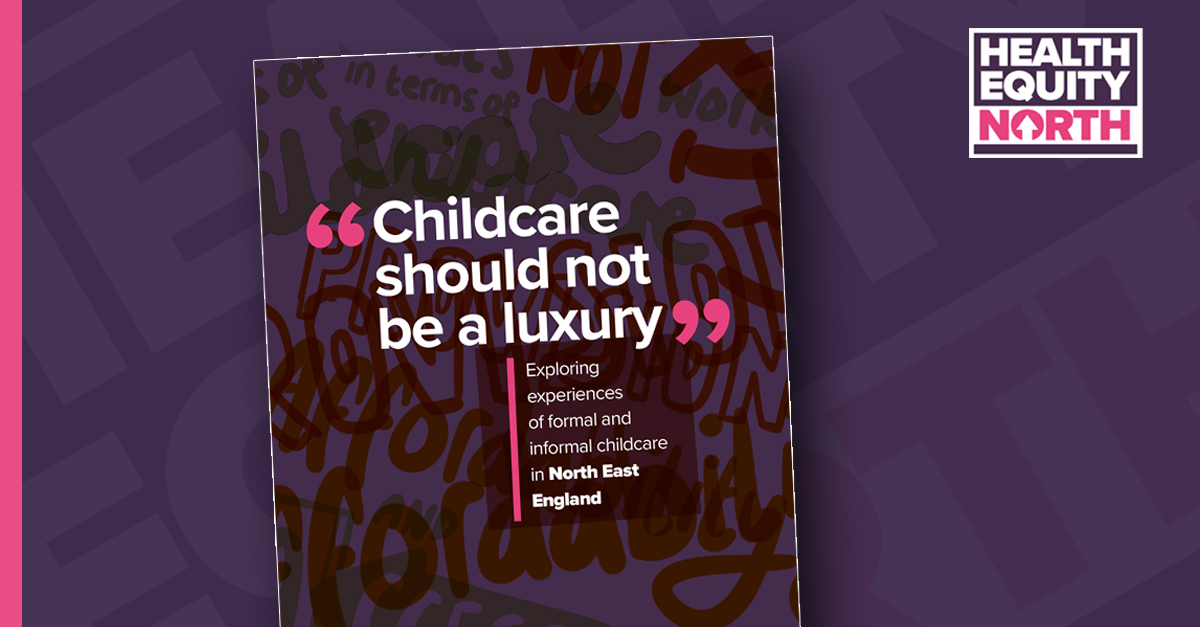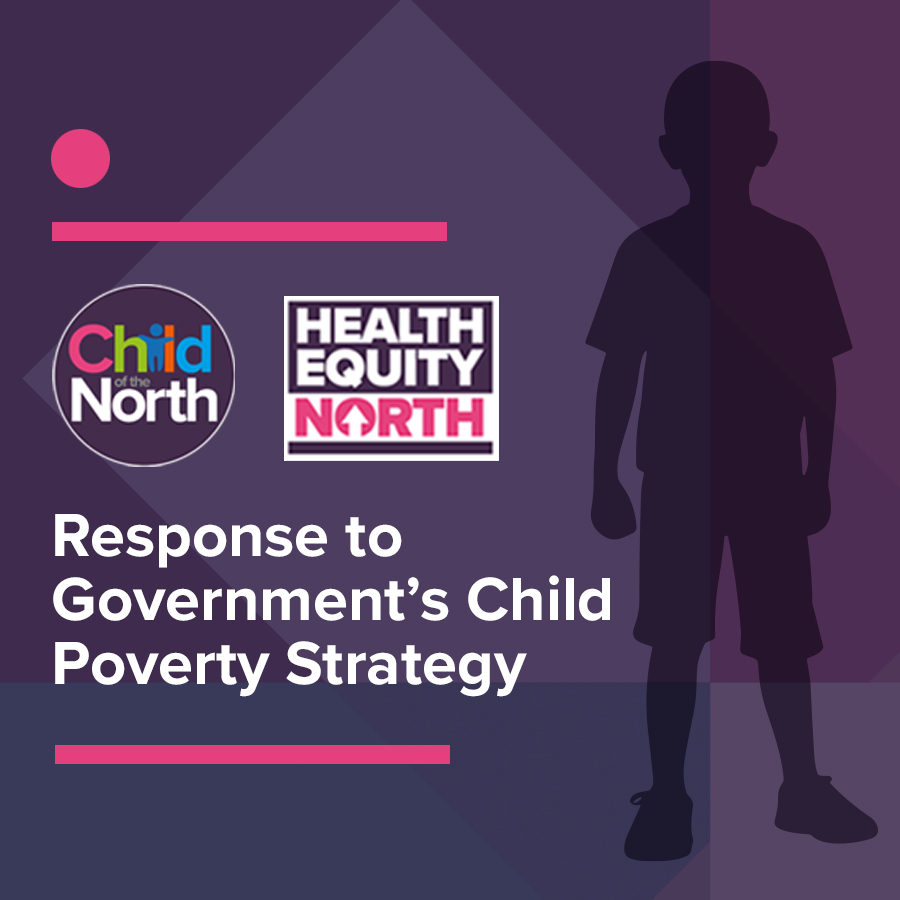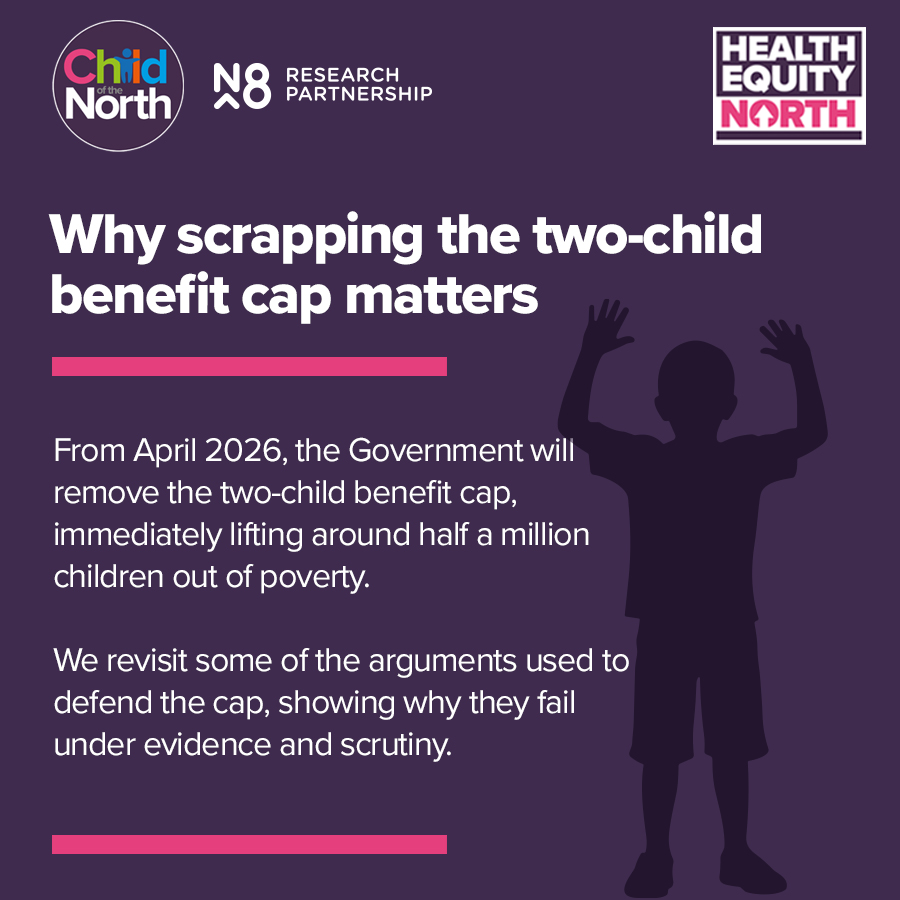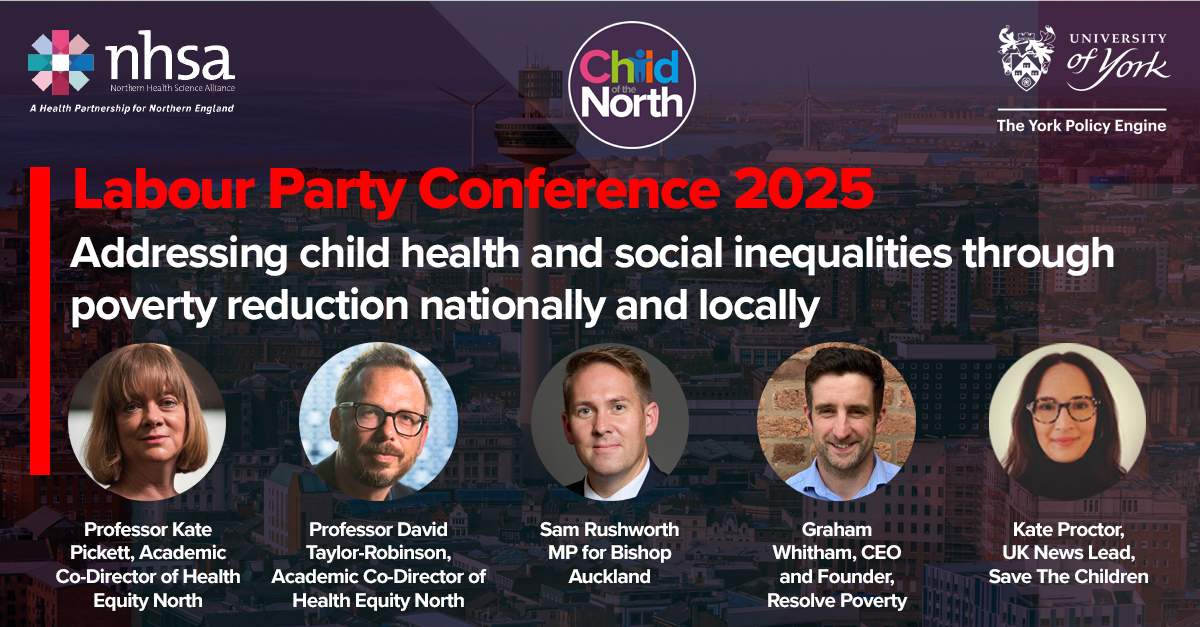Emotional and financial impact of childcare gap laid bare in North East research

Read the report here
The lack of suitable childcare options is inflicting huge financial and emotional strain on some of the country’s most vulnerable families, according to research released today (Thursday June 5, 2025).
The study, led by academics from Health Equity North, Newcastle University and The University of Manchester, highlights why childcare should not be seen as “just a luxury” in 2025.
North East Mayor Kim McGuinness today welcomed the report findings as she prepares to publish the country’s first Child Poverty Action Plan next month, including a set of interventions including the expansion of a regional childcare grant launched earlier this year.
Researchers interviewed parents and carers across the North East of England, who talked about the sacrifices needed to make ends meet – and the loneliness, isolation and anxiety they felt when they didn’t receive adequate childcare support.
Its authors are calling for childcare to be recognised as a “vital piece of national and regional economic infrastructure”, which is necessary for both the health and wellbeing of families and the development of the children themselves.
The report features anonymised quotes from parents and carers as well as childcare providers on the effects of the current childcare situation. You can read it in full here: https://www.healthequitynorth.co.uk/app/uploads/CHILDCARE-REPORT-FINAL.pdf
It states that:
- Many parents and carers still struggle to find childcare which meets their needs, which has a knock-on effect on employment, well-being, and their children’s development and readiness for school
- Parents are experiencing a loss of identity, and struggling to find time for themselves beyond work and childcare
- Paying for childcare absorbs a huge chunk of their salary, forcing them to make cutbacks and lifestyle changes
- Much of the available support requires parents to be in work, meaning that many face a “chicken or egg” scenario where they need to be in employment to access the childcare help they need to get and keep a job
- Families are struggling to claim childcare support alongside existing benefits such as Universal Credit, and are held back by the impact of the two-child limit
- The childcare gap is particularly damaging for those who are already vulnerable and marginalised, including families where English is the second language, those with SEND and medical needs, and families experiencing separation or addiction recovery.
Childcare providers are also under significant pressure, both in recruiting qualified and willing staff and in meeting the needs of families. Several providers now have food banks on-site, and find themselves offering a broad range of support beyond childcare. They also struggle to find and retain staff, particularly those with the right training and experience.
By 2023, the rising cost of childcare was being keenly felt by many across the country, with over a third of parents struggling to afford it. Recent national investment has made a difference for some, with 25 hours a week of childcare for a child under two now costing £66.98 in the North East. However, this rises to an average of £105 for the same care if the parents are not in work, or do not meet the income threshold. These parents are also often working irregular hours, which further raises the price – if suitable care is even available.
The authors are calling for four major recommendations to address the issue, including:
- Reforming childcare funding and benefits, to ensure it is transparent, fully covers costs, and supports parents balancing work and caregiving
- Conducting a North East childcare assessment, focusing on accessibility and impact and prioritising families with additional needs
- Expanding childcare for child development, with more investment in early years education and an acknowledgement that childcare is essential for future outcomes
- Improving workforce pay and conditions, to reduce staff shortages and offer better training and support.
Report co-author Dr Steph Scott, Senior Lecturer in Public Health and Qualitative Methods at Newcastle University, said: “For so many families across the North East and beyond, access to childcare is not simply a luxury. It’s an essential lifeline, allowing them to maintain jobs, a source of income and even a sense of self.
“While some work has been done by recent governments, many of our most vulnerable are still finding themselves left out. We urge the government to consider our recommendations to assure that vital childcare support is offered more widely and transparently.”
Report co-author Dr Natalie Bennett, Research Fellow at The University of Manchester, said: “The families, carers and childcare providers we interviewed across the North East offered an honest and often distressing reminder of the importance of childcare – and what an absence of support can do to their financial and emotional health.
“Without adequate childcare, parents often find themselves isolated, facing mounting costs, and their children can find it more difficult to adjust to school as they grow older. Urgent action is needed to give families the help they need – and to ensure childcare providers are supported in delivering care that makes a real difference.”
North East Mayor Kim McGuinness, said: “Good childcare is often the difference between a child growing up in poverty or a family being able to live a fuller life and thrive. It can help children grow in confidence, and imagine a better future.
“That’s why this report is so important, and why we have created a Mayor’s Childcare Grant in North East England to bridge the gaps in existing provision. We are committed to standing up for high-quality, affordable childcare – because it’s something that can be truly transformative for families in the North East and beyond.”
“As this report highlights, there is still more to be done to help more people access this support. We need to ensure that funding is more accessible for all, and that we consider the barriers that many face, particularly when trying to find employment.”
Hannah Davies, Executive Director of Health Equity North, said: “For a long time now, parents and providers have talked about the cost and availability of adequate childcare, and how it can affect their lives. This is a national issue, but one that is felt particularly keenly in places like the North East, where many families are struggling with their health, finances and employment prospects. This report starkly illustrates how our most vulnerable families are falling through the cracks, which risks further increasing the gap for those that can least afford it.
“We strongly advise policy-makers to consider a more detailed assessment of childcare in places such as the North East, to reduce inequality and improve training.”
The research is produced as part of a partnership between the Northern Health Science Alliance’s Health Equity North, Newcastle University, Durham University, the North East Child Poverty Commission, Ways to Wellness, the North East Combined Authority, Disability North and the National Institute for Health and Care Research (NIHR) Applied Research Collaboration (ARC) North East and North Cumbria**. It was funded by Newcastle University and the Catherine Cookson Foundation.
The full study – titled “Childcare shouldn’t be a luxury”: Exploring experiences of formal and informal childcare in North East England” – is available via the link here: https://www.healthequitynorth.co.uk/app/uploads/CHILDCARE-REPORT-FINAL.pdf






